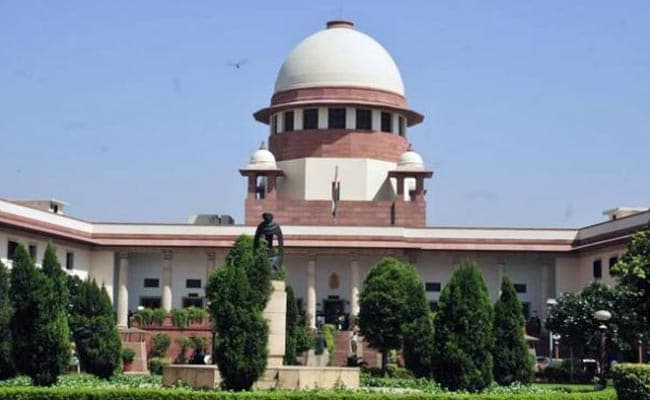
The submission came before a bench of Justices Madan B Lokur and U U Lalit.
New Delhi:
The government today admitted before the Supreme Court that as of now there is 'no mechanism" to prevent uploading of obscene contents like videos of sexual violence on websites, before these are uploaded.
The submission came before a bench of Justices Madan B Lokur and U U Lalit, which asked "what is the stand of the government", after internet service provider Google said there could not be a "reasonable prevention" before such contents are uploaded on websites.
"Today, there is no mechanism to prevent it before it is uploaded on the websites," the lawyer appearing for the Centre said, prompting the bench to ask, "why is there no such mechanism?"
Responding to the query, the government said, "somebody has to tell us about it (uploading of such contents). There are preventive mechanisms."
During the hearing, senior counsel Abhishek Manu Singhvi, representing Google India, said it was almost impossible to trace a person before he uploads such contents on websites.
He, however, said if someone was a habitual offender and was uploading such contents repeatedly, Google can take action on it. Singhvi said this while responding to a query by the bench, "How to prevent it (such contents) from being uploaded?"
Referring to the Centre's affidavit in the matter, the bench, which posted the matter for arguments on March 3, said the measures stated by the government "seems to be post facto".
The government had earlier informed the apex court that it would set up a specialised nodal agency to block and curb sharing of sexual offence videos on social networking sites. The apex court had earlier sought response from internet majors like Google, Microsoft, Yahoo and Facebook on a plea, seeking curbs on sharing of sexual offence videos on social networking sites and steps to check cyber crimes.
The court was hearing a letter sent to then Chief Justice of India H L Dattu by Hyderabad-based NGO Prajwala, along with two rape videos in a pen-drive.
It had taken suo motu note of the letter on the posting of these videos on WhatsApp and asked CBI to launch a probe forthwith to nab the culprits.
The submission came before a bench of Justices Madan B Lokur and U U Lalit, which asked "what is the stand of the government", after internet service provider Google said there could not be a "reasonable prevention" before such contents are uploaded on websites.
"Today, there is no mechanism to prevent it before it is uploaded on the websites," the lawyer appearing for the Centre said, prompting the bench to ask, "why is there no such mechanism?"
Responding to the query, the government said, "somebody has to tell us about it (uploading of such contents). There are preventive mechanisms."
During the hearing, senior counsel Abhishek Manu Singhvi, representing Google India, said it was almost impossible to trace a person before he uploads such contents on websites.
He, however, said if someone was a habitual offender and was uploading such contents repeatedly, Google can take action on it. Singhvi said this while responding to a query by the bench, "How to prevent it (such contents) from being uploaded?"
Referring to the Centre's affidavit in the matter, the bench, which posted the matter for arguments on March 3, said the measures stated by the government "seems to be post facto".
The government had earlier informed the apex court that it would set up a specialised nodal agency to block and curb sharing of sexual offence videos on social networking sites. The apex court had earlier sought response from internet majors like Google, Microsoft, Yahoo and Facebook on a plea, seeking curbs on sharing of sexual offence videos on social networking sites and steps to check cyber crimes.
The court was hearing a letter sent to then Chief Justice of India H L Dattu by Hyderabad-based NGO Prajwala, along with two rape videos in a pen-drive.
It had taken suo motu note of the letter on the posting of these videos on WhatsApp and asked CBI to launch a probe forthwith to nab the culprits.
Track Latest News Live on NDTV.com and get news updates from India and around the world

